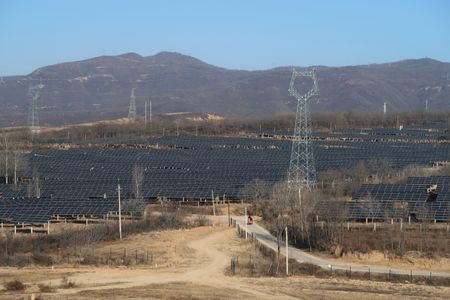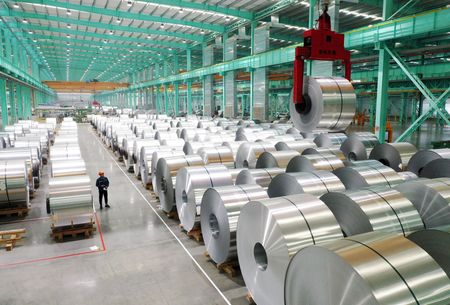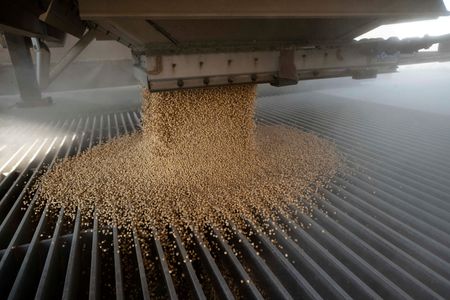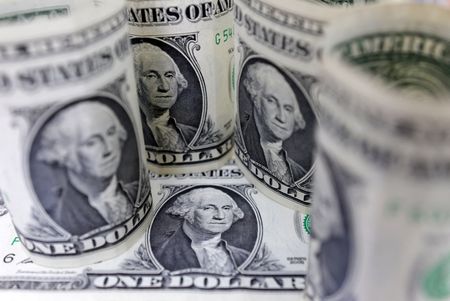HONG KONG (Reuters) -China’s industry ministry said on Tuesday it held a meeting with solar industry representatives, the second in two months, as it urged the sector to strengthen regulations, curb overcapacity and reduce extreme competition among firms.
Representatives at the meeting were told to “jointly promote the healthy and sustainable development of the industry”, the ministry said in a statement.
It said parties must “curb low-price disorderly competition”, referring to overcapacity in the sector.
The discussion followed a meeting in July where the ministry said that authorities should “promote the orderly exit of outdated production capacity”, heightening expectations for the government to tighten the reins on the bloated sector.
A late July meeting of the Politburo, which usually sets China’s economic direction for the year, further raised hopes that the government would start a long-awaited campaign against deflation.
China’s biggest solar firms shed nearly one-third of their workforces in 2024, company filings showed, as losses in the manufacturing value chain reached $40 billion last year.
An ambitious plan led by the largest producers of polysilicon, a solar panel building block, to buy up and shut down around one-third of the industry’s capacity will face challenges in getting smaller producers and local governments on board, analysts say.
Compounding the challenges are pricing reforms that have led to uneven demand this year, with power producers rushing to build most of their new solar plants in the first half of the year before new policies came into effect in June.
That has led domestic demand to drop off sharply in the second half, although – evened out over the year 2025 – it is still expected to set a record high for installations.
With China able to produce roughly twice the amount of solar panels the world will buy this year, analysts say that as much as 20-30% or more of manufacturing needs to go to bring the industry back to profitability.
(Reporting by Farah Master, Colleen Howe and Beijing newsroom; editing by Andrew Heavens and Mark Heinrich)











